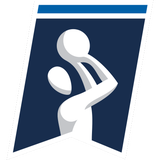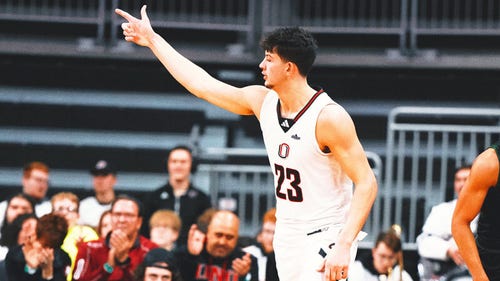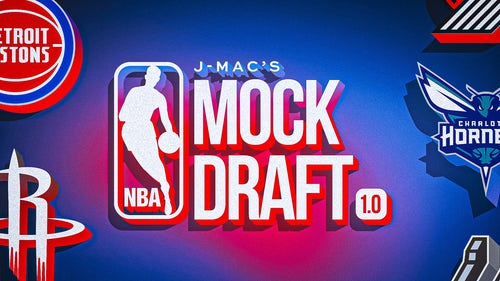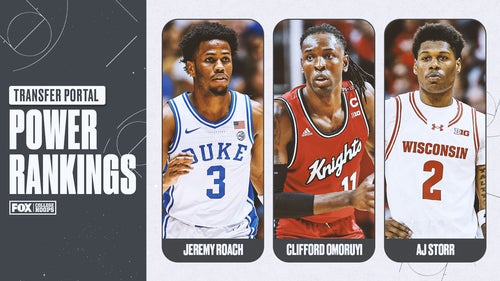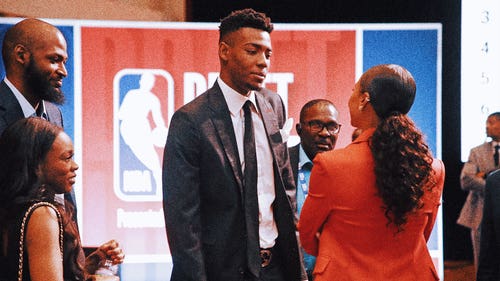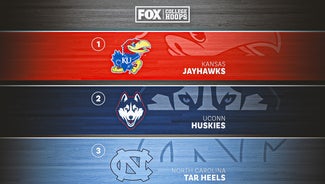
Cancer-stricken announcer calls magical finish
It's the humanity that makes us watch.
Scores are important, stats are interesting and highlights are fun, especially the high-flying dunks and free-for-all rebounding that made Monday night's finale between Louisville and Michigan so special.
But in the end, it's the people and their stories that draw us in and keep us riveted to games that have no bearing on history, no effect on world events, and no greater meaning other than what we bestow upon them.
The final game of the NCAA tournament captivated millions, not because of the X's and O's or the three-point shooting, but because of Rick Pitino’s quest to win championships at two different schools and surpass John Wooden’s win record; and because of how the Louisville players rallied after Kevin Ware went down with now-infamous compound tibia fracture.
That was why people watched. The great basketball was just a bonus.
But there was another great college championship game in recent days, and another story that made it just as compelling for all who watched or listened.
East Carolina University, with a regular-season record of 23-12, lost to Tulsa in the first round of the Conference USA tournament, which most thought was the end of the road for the Pirates. Then, the team got an invitation to the CollegeInsiders.com Postseason Tournament, a five-year-old event geared toward deserving mid-major schools that failed to garner invites from NCAA or NIT.
Thrilled to be playing, the Pirates took advantage, winning games at home in Greenville, N.C., against Savannah State, Rider, Loyola Maryland and Evansville. That earned them a spot in the championship game against Weber State in Ogden, Utah.
Calling the home games on the sidelines was the long-time voice of the Pirates, Jeff Charles, a man whose enthusiastic tenor had been drawing East Carolina fans to their radios for 25 years. Under normal circumstances, Charles would have been the first on the plane for Ogden. His calls were often more compelling than the games, and his personality had become a part of the institution — just like Eli Gold at Alabama and the late Larry Munson at Georgia.
But these were not normal circumstances. In December, just two weeks after being honored at a home football game for a quarter-century of service, Charles was diagnosed with stage 3 colorectal cancer.
"People couldn't believe I have cancer," he said. "I was in great shape. I worked out every single day of my life and my diet's not perfect, but it’s pretty good. There was never any male cancer in my family and all the symptoms that you look at when you might have cancer, I had none of them. It was just one of those things that happened."
Two surgeries and aggressive chemotherapy kept Charles out of the broadcasting chair for 2 1/2 months. He returned to the sidelines on Feb. 13 but only for home games, his weakened state precluding him from travel. Some games he called with a chemo needle in his chest and an infusion pump duct-taped to his shoulder.
"I grew up as a cop's kid," Charles said. "He was a tough taskmaster, a World War II veteran from a generation where things were black and white. So, fighting through this and being strong is just a part of how I grew up."
He shouldn’t have gone to Ogden. In addition to complications that go with flying, including a high probability of vomiting and dehydration, the charter left at 10 p.m. on a Sunday night and didn't land until after midnight Mountain time Monday morning. The game was Tuesday night, and the plane would leave again within hours of the final buzzer.
They would land in Greenville around 4:30 on Wednesday morning, not the kind of travel schedule a 60-year-old cancer patient should even consider. But Jeff was going. Nothing would keep him away.
"I'm dealing with some daily issues with my health, and my wife, who had a nursing background, was able to make the trip with me, which was crucial," he said. "My hat's off to ECU for making a seat available for her on the plane. When they gave her clearance, I was good to go."
Charles capped the season by calling the most thrilling game of the year. Tied at 74 with 25 seconds remaining, ECU coach Jeff Lebo called for either Miguel Paul or Maurice Kemp, who had combined for 43 points, to take the last shot. But Weber State had the hot shooters covered.
With time winding perilously close to zero, Charles' voice went higher as he told his listening audience that Paul was covered.
Paul spun and found Akeem Richmond standing well outside the three-point arc. With one second remaining, Richmond fired up a long-range three that stripped the net at the buzzer.
East Carolina won the CIT championship. And in that moment, no one would have known the man calling the final play was anything but the picture of health.
"You just get caught up in the emotion and adrenaline of the game, so you really don’t think a lot about it," Charles said.
He thinks about it now, though.
"I'm getting through the treatments really well," he said the day after the basketball season came to an official close. "I'm blessed that I haven't been sick like a lot of people on the (chemo) treatment, and I haven’t lost my hair, although I’m pretty fatigued at times.
Then, after pausing to compose himself he said, "The support I’ve received has been overwhelming. Cards and letters and well-wishes have poured in ... I am incredibly blessed, just very blessed to be here."
